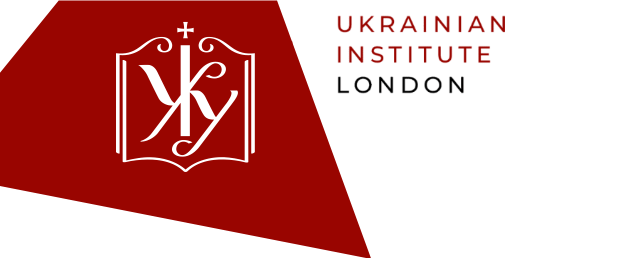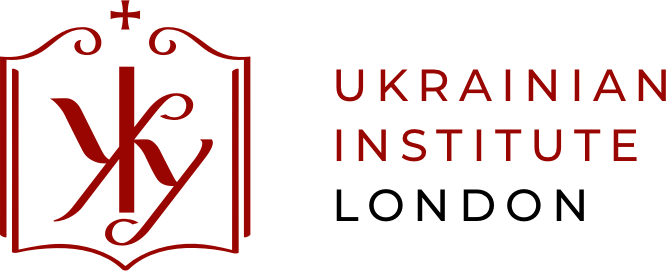A discussion about whether Europe needs a shared narrative of World War Two, held by the Ukrainian Institute London and the Henry Jackson Society on the eve of VE day.

AUTHOR
James Bolton-Jones, Master’s student in Russian and Post-Soviet Politics at UCL School of Slavonic and East European Studies and Graduate of the Ukrainian Studies Programme at the University of Cambridge.
On the eve of VE day, Ukrainian Institute London and the Henry Jackson Society held a lively discussion about whether Europe needs a shared narrative of World War Two.
A rise in nationalist and populist politics across Europe has seen the instrumentalization of national histories of heroism and victimhood for political gain. These narrow nationalist histories propagate at the expense of a fuller understanding encompassing the myriad human experiences of the war. The speakers sought to question how nationalist narratives of the war could be supplanted by more nuanced and thoughtful ones.
Moderator Adrian Karatnycky, a Senior Fellow at the Atlantic Council, was joined by four engaging speakers: Serhii Plokhy, a historian, author and Director of Harvard Ukrainian Research Institute; Krzystof Czyżewski, a writer, philosopher, President of the Borderland Foundation; Brendan Simms a historian at Cambridge University and President of the Henry Jackson Society; and Nataliia Popovych, an entrepreneur, international communications expert and civic activist.
Popovych kicked off the discussion with a presentation of a study she has undertaken with her One Philosophy group, which analysed media narratives from 2018-2019 around events that have influenced Ukraine’s role in the world.
Some of these events which influenced Ukraine – the Ribbentrop-Molotov Pact, Russia’s role in WW2, the Yalta Conference, and anti-Soviet uprisings in Central and Eastern Europe – are also central to the history of WW2.
Interestingly Popovych found that Ukrainian and Russian media mentioned these topics much more frequently than UK, French, German and Polish media, suggesting a preoccupation with these topics in Russia and Ukraine.
Plokhy picked up on this point, noting that in Ukraine there is not a shared narrative about WW2, but three diverging narratives.
The first is the one inherited from Soviet times, placing Ukraine in the context of the Soviet army’s defeat of Nazism. The second is a liberal narrative which seeks to integrate Ukraine into wider European and global history, with this narrative opposed by a third one which elevates the role of the Ukrainian insurgent army which was almost entirely neglected in the historiography of Soviet period.
Silos of national narratives
Finding a common narrative of WW2 for Ukraine, Plokhy said, would be an important step to getting Ukraine onto the European and global scene.
In contrast to what Plokhy characterised as a “major battleground” in Ukraine over opposing narratives about WW2, Simms emphasised that while narratives in Germany and the UK are contested to an extent, there is generally a shared narrative.
In the UK, this revolves around the theme of Britain being the only country left to take on Germany before the US joined the war, whereas in Germany enormous strides have been made in coming to terms with Germany’s role as perpetrator of Nazism and the Holocaust.
Czyżewski continued Plokhy’s battleground metaphor, using it in the context of Polish narratives on WW2. To illustrate his point, he referred to an attempt to create a WW2 museum in Gdansk which focussed not just on the Polish experience of the war, but also on the global story of the war, giving justice to other traumas and narratives.
However, the increasingly nationalist Polish government intervened in the project with an objection that it did not sufficiently feature Polish experiences, leaving the future of the project and its original aims unclear.
This epitomises the Polish emphasis on a narrative of victimisation, which Czyżewski argued is an oversimplification of the narrative. Gross’ book “Neighbours” which tackles Polish collaboration in the Holocaust, he noted, shows that the narrative which suggests that Poles where only victims of the war is not a complete one.
In that vein, Plokhy urged us to move beyond reductive binaries like heroization/villanization and victims/perpetrators to achieve a more nuanced understanding of WW2. To illustrate his point he referred to one example where people who started the war as members of the German secret police ended it as Soviet partisans.
The speakers ended the discussion by interrogating the meaning of a “shared narrative”. Plokhy suggested that it does not mean prioritising the narrative of any one side but entails incorporating and accepting the experiences of many.
Czyżewski proposed that creating a shared narrative was a utopia, but that spaces for memory and empathy, like the museum in Gdansk hijacked by narrow political and national interests, were necessary to confront the trauma of war and find common ground.
This event was organised by Ukrainian Institute London and the Henry Jackson Society, and supported by Ukrainian Jewish Encounter.
Watch the full event recording on our YouTube channel.



